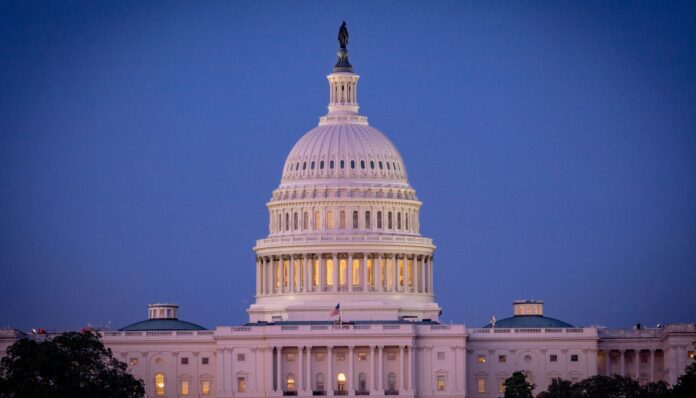A Republican-backed proposal that would tie federal broadband funding to a decade-long ban on state-level AI regulations has advanced past a key procedural hurdle in the Senate.
According to The Guardian, the proposed 10-year ban by the Trump administration would apply to US states creating “any law or regulation limiting, restricting, or otherwise regulating artificial intelligence models, artificial intelligence systems, or automated decision systems.”
The Senate Parliamentarian ruled that the provision — reportedly redrafted under the direction of Senate Commerce Chair Ted Cruz — is eligible for inclusion under budget reconciliation and does not violate the Byrd Rule, which limits non-budgetary items from being passed by a simple majority.
As a result, the proposed moratorium can now be included in the Republicans’ sweeping “One Big, Beautiful Bill.”
Moratorium on state-level AI regulation remains in limbo
Despite clearing the procedural review, the proposal’s future remains uncertain. Republican Sen. Marsha Blackburn of Tennessee recently stated that a moratorium is not necessary, as it would prohibit states from protecting their citizens.
Although the House of Representatives passed a version of the bill that includes a moratorium on AI regulation, Rep. Marjorie Taylor Greene said she is “adamantly opposed” to the provision, calling it a violation of states’ rights and needs to be “stripped out in the Senate …,” adding that “We should be reducing federal power and preserving state power.”
The Guardian reported that during a meeting of the Association for the Advancement of Artificial Intelligence, Microsoft’s Chief Scientist Dr. Eric Horvitz warned that blocking state-level oversight could delay the responsible development of AI. Horvitz said such bans on regulation may “hold us back” and “could be at odds with making good progress on not just advancing the science, but in translating it into practice.”
Microsoft is involved in a broader lobbying campaign to convince the Senate to enact the decade-long moratorium on state efforts to self-legislate AI.
A potential ‘regulatory vacuum’
A June 2025 report from the Americans for Responsible Innovation (ARI), a nonprofit advocating for ethical AI regulation, warned about the sweeping language of the federal moratorium proposal.
“The proposal’s broad language could potentially sweep away a wide range of public interest state legislation regulating AI and other algorithmic-based technologies, creating a regulatory vacuum across multiple technology policy domains without offering federal alternatives to replace the eliminated state-level guardrails,” ARI wrote in the report.
Several states have taken legislative steps to regulate AI on their own terms. As of the 2024 legislative session, at least 45 states, Puerto Rico, the Virgin Islands, and Washington, D.C., had introduced AI bills. Of those, 31 states, Puerto Rico, and the Virgin Islands adopted resolutions or enacted legislation.
Read more about why experts say AI legislation is falling behind the pace of technological advances in our analysis of Governor Newsom’s veto of California’s AI bill.
